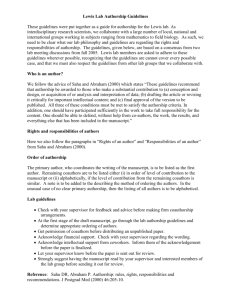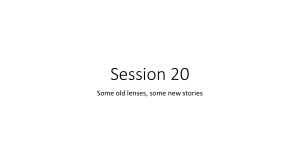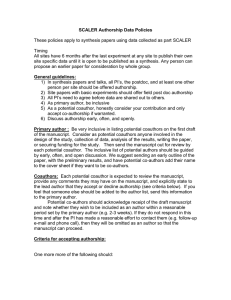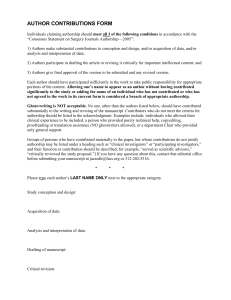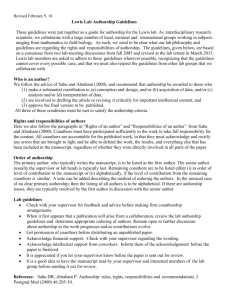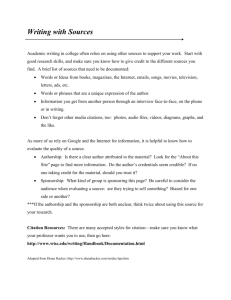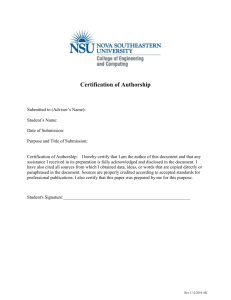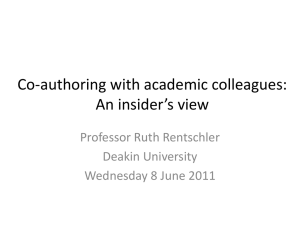Publishing in Medicine
advertisement
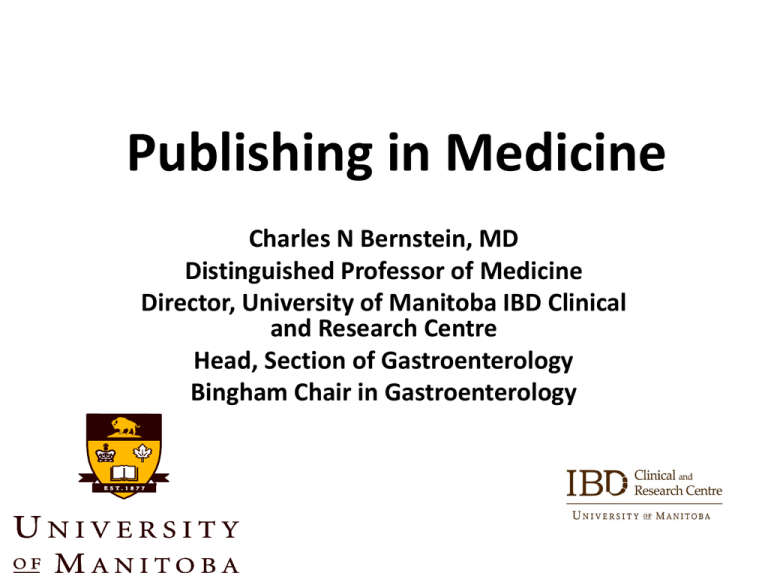
Publishing in Medicine Charles N Bernstein, MD Distinguished Professor of Medicine Director, University of Manitoba IBD Clinical and Research Centre Head, Section of Gastroenterology Bingham Chair in Gastroenterology Start of Study • When you start your study consider whether it will be publishable • What will reviewers take issue with • Even if you can derive a set of analyzable data will reviewers/readers be interested in the results • Discuss authorship especially if collaborating with new people Start of Writing • Begins when you write your proposalbetter job here makes manuscript writing easier • Less is more The Introduction • Should be short • Shorter than the Discussion • Make the case for why the study should be done and what the study’s objectives are • Save the review of all that has been done before your study, for the Discussion The Methods • More is better • Make sure the reviewers have all the information they need to understand what you have done and make sure they have enough detail to be convinced that you know what you are doing The Results • Set out all your results in tables and figures • Decide what is really important-base this on what you think are most novel messages or the messages you want to get out • Pick 6 or 7 tables and figures in combo. • Extra results that you think are interesting may be summarized in text (or supplement) • Make sure your tables or figures can stand alone- enough info in titles and legends The Results • You likely have to cut some results from the manuscript • Get over it The Discussion • Start with the key results • Review the literature and where your results fit as concisely as possible • Point out limitations of your study • Point out strengths of your study • Summarize results and messages in final paragraph The Wording • You like the way another author has summarized a topic…..cite them • Change some of their words anyway so the paragraph is not identical • When you review, always be thinking; “is there some way I can shorten this sentence” The Abstract • Often limited to 250 words • Difficult, but forces you to decide what is most important in this study • This is what editor is reading before he/she decides if they are going to read on/and send out for review The Title • Catchy is good for an editorial but you can make a case for your punchline in the title even in original research • For original research can be best to include a method and the subject matter and possibly the population under study The title • “Are we telling patients the truth about dysplasia surveillance in ulcerative colitis” • “How well does the Web answer patients’ questions about IBD. ” • “5-aminosalicylate is not chemoprophylactic for colorectal cancer in IBD: A population based study. ” Authorship • Be inclusive • Including research associates (nurses, techs) can gain allegiance and interest • Either a collaborator or a consultant (getting authorship or getting paid). May need to pay a collaborator for some services • Remember how you were annoyed when senior staff wanted authorship on your work when you become senior staff Coauthors input • Some are passengers • Some are passionate-they are a help; listen to their comments and revise BUT • Someone needs to be the final say..this is the first author and/or the senior author • If you know your coauthors and they are notoriously late give them a deadline for response and move on when it passes Picking a journal • Be honest-where does it belong..typically you strike out with first journal • Ask senior people where it belongs-they may have a sense of which journals are interested in what kind of work
